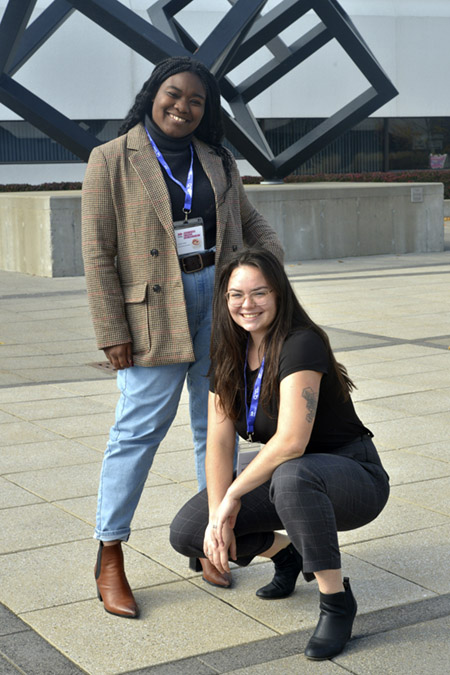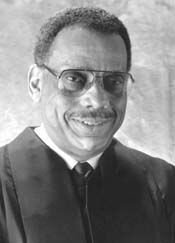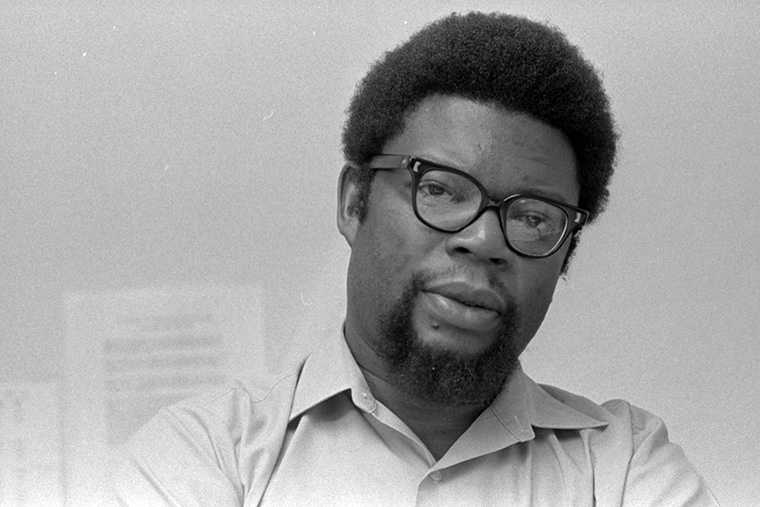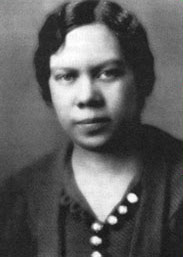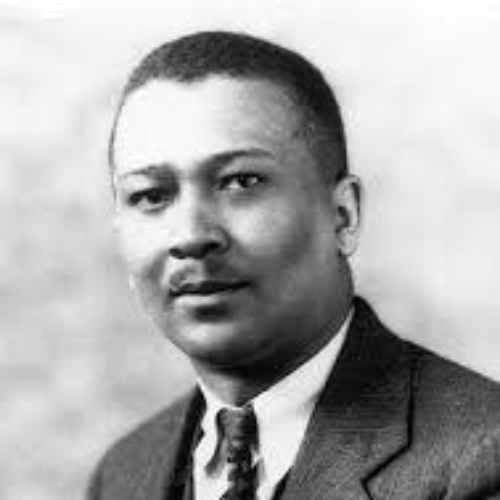What is spinal cord injury?
Spinal cord injury (SCI) refers to damage to the spinal cord caused by trauma (for example, motor vehicle accident or fall) or disease (for example, cancer). Injury can be complete, resulting in loss of either feeling or movement below level of the injury, or incomplete, which indicates some preservation of feeling and/or movement below the level of the injury.
There is an estimated 85,000 people currently living with SCI in Canada1. People with SCI may experience loss or changes in sensation and mobility, as well as loss or changes in their ability to control breathing, heart rate, blood pressure, bowel, or bladder.
After the initial injury or condition has been stabilized, interdisciplinary care is recommended given the range of possible conditions that may develop from this devastating injury. A rehabilitation team may include a physiatrist (a doctor specializing in physical medicine and rehabilitation), physical therapist, occupational therapist, social worker, and psychologist.
Rehabilitation goals change through the different stages of recovery. Early stages of recovery usually emphasize stabilizing the injury or condition, and improving muscle function and joints’ range of motion (for example, through stretching or assisted standing)2. Goal setting in later stages depends on the individual, but usually aims at independence, integrity, and overall quality of life.
How can psychology or a psychologist help?
SCI can be a life-changing event. Recovery can be challenging as people come to terms with differing physical capacity, new routines, changing relationships, and possibly evolving sense of self. While people differ in their emotional experiences, emotional reactions such as shock, anger, guilt, and grief may be normal.
Around 20-30% of people with SCI experience depression and anxiety at some point during their recovery3 4. In particular, women who give birth after SCI, particularly women with high-level SCI (i.e., injury at the cervical level), are at increased risk of postpartum depression (25–37%) and anxiety (18–33%)5. Suicide rate is elevated, with one study finding the suicide mortality rate among people with traumatic SCI five times higher than that of the general population6. People with SCI may also be at higher risk of substance use dependence, especially cannabis and opioid7. Mental health concerns can worsen physical complications associated with SCI and impede rehabilitation8 9.
In addition, co-occurring traumatic brain injury (TBI) can occur in as many as 59% of SCI cases10. The physical, emotional, and cognitive impacts of TBI, which may involve attention and learning deficits, agitation and emotional regulation difficulties, are difficult to disentangle from other SCI complications, and can further complicate the rehabilitation process11.
Psychologists play a crucial role in rehabilitation for people with SCI. As trained practitioners in emotional and behavioural change management, psychologists can work collaboratively with people with SCI throughout or at any stages of their rehabilitation. That said, early psychological support is ideal, especially if a dual diagnosis of TBI and SCI is suspected: longitudinal research has shown stability in coping strategies and psychological health from as earlier as week 12 to year 1011 12.
There is evidence to suggest that psychological treatments are effective for people with SCI. Cognitive behavioural therapy (CBT) has been shown to decrease symptoms of depression and anxiety, and enhance coping strategies, demonstrating equal effectiveness whether offered individually or in group, as well as in-person or online13. There are fewer studies on mindfulness, but current research has also showed benefits for pain and mood management14. Self-management training programs can reduce stress, improve sense of control and coping, with evidence to suggest long-lasting benefits15. Family and couples’ therapy can also assist people with SCI and their loved ones in navigating shifting dynamics in their relationships. Overall, psychological interventions can complement other rehabilitation practices (for example, medications, exercises, and experimental interventions) to improve people with SCI’s wellbeing.
References
- Noonan VK, Fingas M, Farry A, et al. Incidence and prevalence of spinal cord injury in Canada: a national perspective. Neuroepidemiology 2012;38(4):219-26. doi: 10.1159/000336014 [published Online First: 20120427]
- Nas K, Yazmalar L, Şah V, et al. Rehabilitation of spinal cord injuries. World J Orthop 2015;6(1):8-16. doi: 10.5312/wjo.v6.i1.8 [published Online First: 20150118]
- Williams R, Murray A. Prevalence of depression after spinal cord injury: a meta-analysis. Arch Phys Med Rehabil 2015;96(1):133-40. doi: 10.1016/j.apmr.2014.08.016 [published Online First: 20140916]
- Le J, Dorstyn D. Anxiety prevalence following spinal cord injury: a meta-analysis. Spinal Cord 2016;54(8):626. doi: 10.1038/sc.2016.69
- Lee AHX, Wen B, Walter M, et al. Prevalence of postpartum depression and anxiety among women with spinal cord injury. The journal of spinal cord medicine 2021;44(2):247-52. doi: 10.1080/10790268.2019.1666239 [published Online First: 20190924]
- Savic G, DeVivo MJ, Frankel HL, et al. Suicide and traumatic spinal cord injury-a cohort study. Spinal Cord 2018;56(1):2-6. doi: 10.1038/sc.2017.98 [published Online First: 20170926]
- Graupensperger S, Corey JJ, Turrisi RJ, et al. Individuals with spinal cord injury have greater odds of substance use disorders than non-sci comparisons. Drug Alcohol Depen 2019;205 doi: 10.1016/j.drugalcdep.2019.107608
- Elliott TR, Frank RG. Depression following spinal cord injury. Arch Phys Med Rehabil 1996;77(8):816-23. doi: 10.1016/s0003-9993(96)90263-4
- Aoki T, Hosaka T, Ishida A. Psychiatric evaluation of physical rehabilitation patients. Gen Hosp Psychiatry 1995;17(6):440-3. doi: 10.1016/0163-8343(95)00060-7
- Budisin B, Bradbury CC, Sharma B, et al. Traumatic Brain Injury in Spinal Cord Injury: Frequency and Risk Factors. J Head Trauma Rehabil 2016;31(4):E33-42. doi: 10.1097/HTR.0000000000000153
- Kushner DS, Alvarez G. Dual diagnosis: traumatic brain injury with spinal cord injury. Phys Med Rehabil Clin N Am 2014;25(3):681-96, ix-x. doi: 10.1016/j.pmr.2014.04.005 [published Online First: 20140616]
- Pollard C, Kennedy P. A longitudinal analysis of emotional impact, coping strategies and post-traumatic psychological growth following spinal cord injury: a 10-year review. Br J Health Psychol 2007;12(Pt 3):347-62. doi: 10.1348/135910707X197046
- Mehta S, Orenczuk S, Hansen KT, et al. An evidence-based review of the effectiveness of cognitive behavioral therapy for psychosocial issues post-spinal cord injury. Rehabil Psychol 2011;56(1):15-25. doi: 10.1037/a0022743
- Hearn JH, Finlay KA. Internet-delivered mindfulness for people with depression and chronic pain following spinal cord injury: a randomized, controlled feasibility trial. Spinal Cord 2018;56(8):750-61. doi: 10.1038/s41393-018-0090-2 [published Online First: 20180326]
- Kennedy P, Duff J, Evans M, et al. Coping effectiveness training reduces depression and anxiety following traumatic spinal cord injuries. Br J Clin Psychol 2003;42(Pt 1):41-52. doi: 10.1348/014466503762842002
For More Information
You can consult with a registered psychologist to find out if psychological interventions might be of help to you. Provincial, territorial and some municipal associations of psychology often maintain referral services. For the names and coordinates of provincial and territorial associations of psychology, click https://cpa.ca/public/whatisapsychologist/PTassociations/.
This fact sheet has been prepared for the Canadian Psychological Association by Dr. Andrei Krassioukov, Professor, Division of Physical Medicine & Rehabilitation, Faculty of Medicine, the University of British Columbia (UBC), Chair and Associate Director, Rehabilitation Research, International Collaboration on Repair Discoveries (ICORD); and Anh-Duong (Jennifer) Phan, Research Assistant, Rehabilitation Research, ICORD.
Date: February 2023
Your opinion matters! Please contact us with any questions or comments about any of the Psychology Works Fact Sheets: factsheets@cpa.ca
Canadian Psychological Association
Tel: 613-237-2144
Toll free (in Canada): 1-888-472-0657

